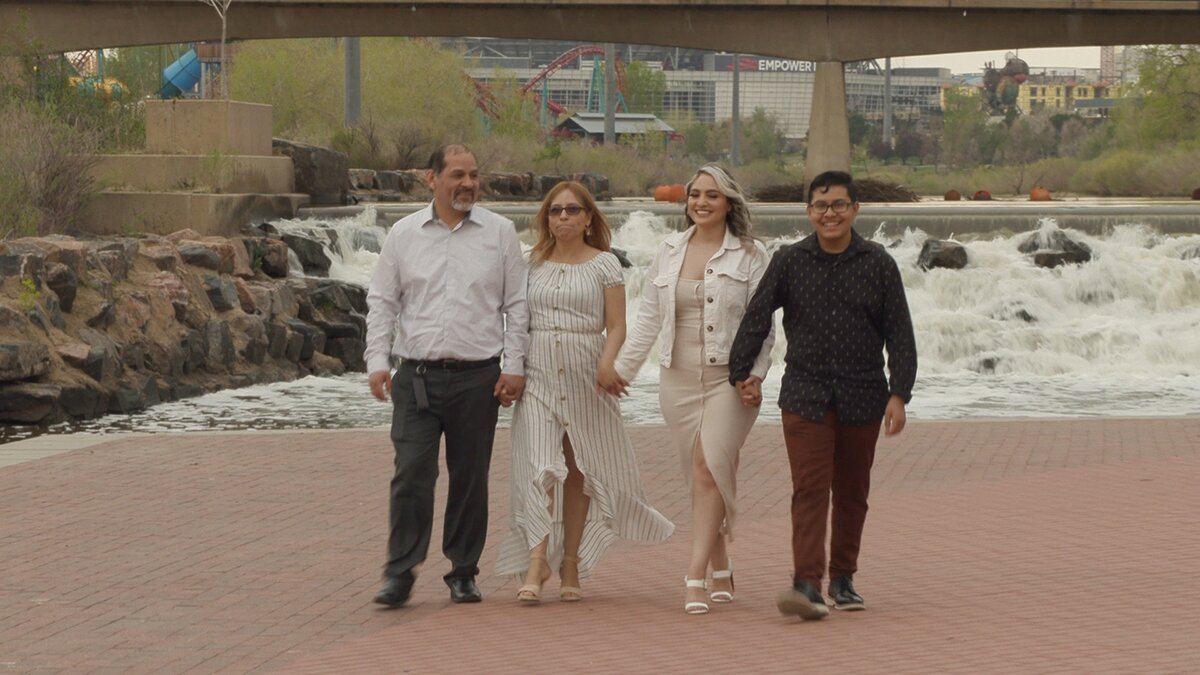'I want to help my community:' Latina graduate plans mental health career

DENVER — In the U.S., more than 450,000 undocumented students are enrolled in higher education, making up two percent of all students enrolled in universities across the country. Nayeli Cisneros is part of this statistic.
Cisneros was eight years-old when she and her family left Mexico and moved to Colorado. Cisneros tells RMPBS that her parents decided to leave Mexico because of the violence surrounding their hometown.
Now 21, Cisneros is well on the road to realizing her goal of becoming a mental health professional. She recently graduated from Metropolitan State University Denver with a degree in psychology, receiving the university’s President’s Award.
“There was violence in Mexico. My family and I heard stories of women being killed all over the place. I would sit in my living room watching television, and I would hear on the news that women were being raped, killed, and left in the desert,” Cisneros says. “When I heard this terrible news as a child, I would think to myself... this can happen to me. The town that I grew up in and knew as home now became this dangerous place. I knew I was affected by it. My family was affected by it."
She continues: "Because of this trauma, this is why I wanted to become a psychologist. Even at a young age, I helped my mom with all of her trauma. I was her 'little therapist,' I knew becoming a psychologist, I could help people when I became older.”
According to the American Psychological Association, language barriers can limit access to quality care.
Cisneros hopes to help fill a well-known need in her community for mental health professionals who can speak Spanish in addition to understanding the culture through lived experience.
“I want to help my community. I want to bring my bilingual skills to the table as a resource,” Cisneros said. “I no longer want to see a continuation of mental health tools translated from English to Spanish. Because that is not how it works, culture is not solely translated through just words.”
Cisneros tells RMPBS that she initially had some doubts about pursuing higher education because of her citizenship status.
“I came into higher education knowing that I probably would not be able to use my degree. Because of my citizenship status, I wasn’t able to work in my field," she explained. "So, most of the time I spent volunteering, but in September of 2020, I received my work permit!”
With a work permit in hand, Cisneros currently works as a research assistant at a children’s hospital and an intake officer at a facility for people experiencing addiction.
The recent grad gives credit to her family for helping her succeed. She refers to her mother, Leonor, as a "super mom."
“Our daughter is our pride and joy, our strength and our enthusiasm,” Leonor says. “Nayeli means the world to us.”

In addition, Nayeli says that when she didn’t think she could accomplish certain aspects of her life, her father, Miguel, was there for her. She recalls her father telling her: ‘If anyone can do it, it is you.’
“My daughter is a woman we can all admire,” Miguel says. “Nayeli is the perfect example of what a young woman can accomplish in her life.”
Cisneros' little brother, Omar, echoes their father’s sentiments. “I’m proud of my sister’s accomplishments,” Omar says. “I’m just very thankful that she is my sister.”
Cisneros tells RMPBS that she hopes her story will inspire other young adults dealing with unique situations never to give up on their dreams.
“When you someone else’s story, it motivates you, like, ‘if she was able to do that or he was able to do that, then so should I,’” Cisneros says. “I want people to know that it is OK to follow their path.”
Lindsey Ford is a multimedia journalist with Rocky Mountain PBS. You can reach her at lindseyford@rmpbs.org.
